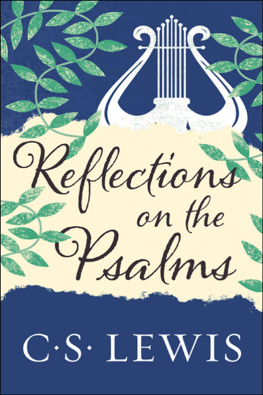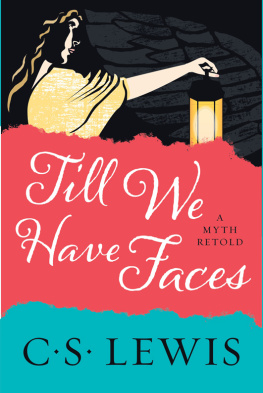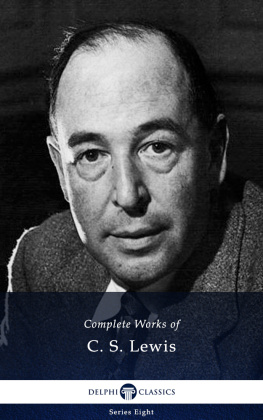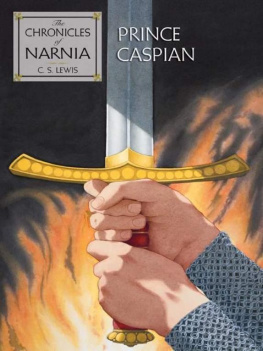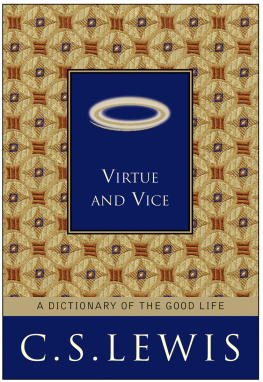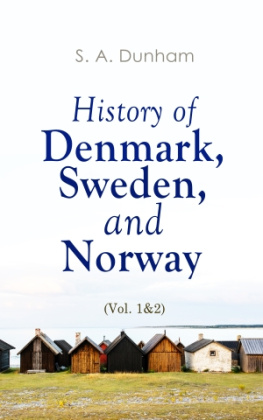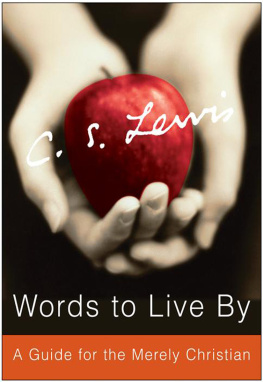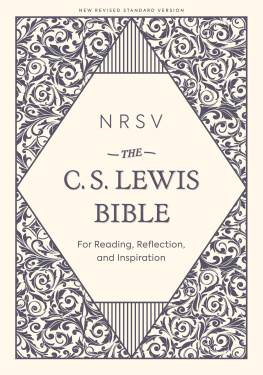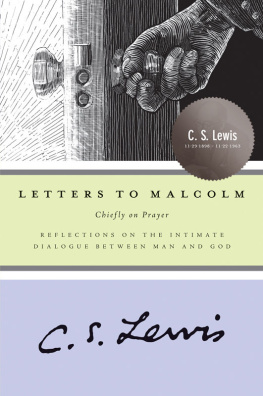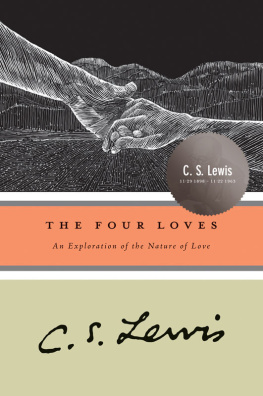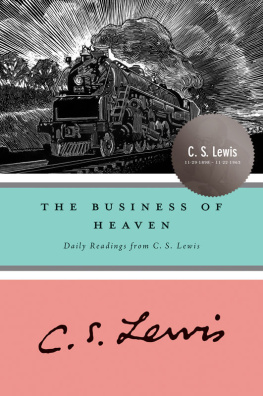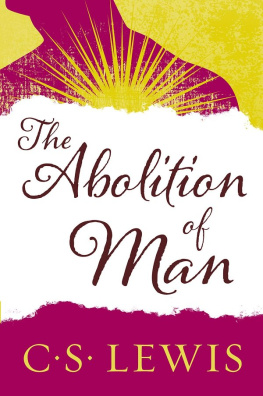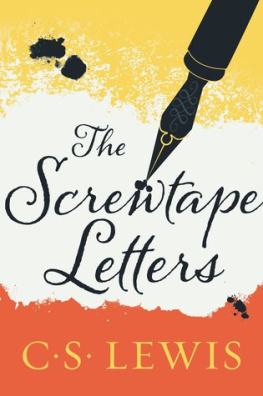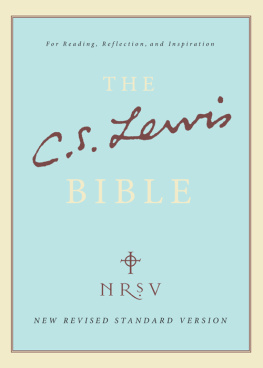C. S. Lewis
Contents
Right and Wrong as a Clue to the Meaning of the Universe
The Law of Human Nature
Some Objections
The Reality of the Law
What Lies Behind the Law
We have Cause to be Uneasy
What Christians Believe
The Rival Conceptions of God
The Invasion
The Shocking Alternative
The Perfect Penitent
The Practical Conclusion
Christian Behaviour
The Three Parts of Morality
The Cardinal Virtues
Social Morality
Morality and Psychoanalysis
Sexual Morality
Christian Marriage
Forgiveness
The Great Sin
Charity
Hope
Faith
Faith
Beyond Personality: Or First Steps in the Doctrine of the Trinity
Making and Begetting
The Three-Personal God
Time and Beyond Time
Good Infection
The Obstinate Toy Soldiers
Two Notes
Lets Pretend
Is Christianity Hard or Easy?
Counting the Cost
Nice People or New Men
The New Men
The contents of this book were first given on the air, and then published in three separate parts as Broadcast Talks (1942), Christian Behaviour (1943) and Beyond Personality (1944). In the printed versions I made a few additions to what I had said at the microphone, but otherwise left the text much as it had been. A talk on the radio should, I think, be as like real talk as possible, and should not sound like an essay being read aloud. In my talks I had therefore used all the contractions and colloquialisms I ordinarily use in conversation. In the printed version I reproduced this, putting dont and weve for do not and we have . And wherever, in the talks, I had made the importance of a word clear by the emphasis of my voice, I printed it in italics. I am now inclined to think that this was a mistakean undesirable hybrid between the art of speaking and the art of writing. A talker ought to use variations of voice for emphasis because his medium naturally lends itself to that method: but a writer ought not to use italics for the same purpose. He has his own, different, means of bringing out the key words and ought to use them. In this edition I have expanded the contractions and replaced most of the italics by a recasting of the sentences in which they occurred: but without altering, I hope, the popular or familiar tone which I had all along intended. I have also added and deleted where I thought I understood any part of my subject better now than ten years ago or where I knew that the original version had been misunderstood by others.
The reader should be warned that I offer no help to anyone who is hesitating between two Christian denominations. You will not learn from me whether you ought to become an Anglican, a Methodist, a Presbyterian, or a Roman Catholic. This omission is intentional (even in the list I have just given the order is alphabetical). There is no mystery about my own position. I am a very ordinary layman of the Church of England, not especially high, nor especially low, nor especially anything else. But in this book I am not trying to convert anyone to my own position. Ever since I became a Christian I have thought that the best, perhaps the only, service I could do for my unbelieving neighbours was to explain and defend the belief that has been common to nearly all Christians at all times. I had more than one reason for thinking this. In the first place, the questions which divide Christians from one another often involve points of high Theology or even of ecclesiastical history, which ought never to be treated except by real experts. I should have been out of my depth in such waters: more in need of help myself than able to help others. And secondly, I think we must admit that the discussion of these disputed points has no tendency at all to bring an outsider into the Christian fold. So long as we write and talk about them we are much more likely to deter him from entering any Christian communion than to draw him into our own. Our divisions should never be discussed except in the presence of those who have already come to believe that there is one God and that Jesus Christ is His only Son. Finally, I got the impression that far more, and more talented, authors were already engaged in such controversial matters than in the defence of what Baxter calls mere Christianity. That part of the line where I thought I could serve best was also the part that seemed to be thinnest. And to it I naturally went.
So far as I know, these were my only motives, and I should be very glad if people would not draw fanciful inferences from my silence on certain disputed matters.
For example, such silence need not mean that I myself am sitting on the fence. Sometimes I am. There are questions at issue between Christians to which I do not think we have been told the answer. There are some to which I may never know the answer: if I asked them, even in a better world, I might (for all I know) be answered as a far greater questioner was answered: What is that to thee? Follow thou Me. But there are other questions as to which I am definitely on one side of the fence, and yet say nothing. For I am not writing to expound something I could call my religion, but to expound mere Christianity, which is what it is and what it was long before I was born and whether I like it or not.
Some people draw unwarranted conclusions from the fact that I never say more about the Blessed Virgin Mary than is involved in asserting the Virgin Birth of Christ. But surely my reason for not doing so is obvious? To say more would take me at once into highly controversial regions. And there is no controversy between Christians which needs to be so delicately touched as this. The Roman Catholic beliefs on that subject are held not only with the ordinary fervour that attaches to all sincere religious belief, but (very naturally) with the peculiar and, as it were, chivalrous sensibility that a man feels when the honour of his mother or his beloved is at stake. It is very difficult so to dissent from them that you will not appear to them a cad as well as a heretic. And contrariwise, the opposed Protestant beliefs on this subject call forth feelings which go down to the very roots of all Monotheism whatever. To radical Protestants it seems that the distinction between Creator and creature (however holy) is imperilled: that Polytheism is risen again. Hence it is hard so to dissent from them that you will not appear something worse than a heretica Pagan. If any topic could be relied upon to wreck a book about mere Christianityif any topic makes utterly unprofitable reading for those who do not yet believe that the Virgins son is Godsurely this is it.
Oddly enough, you cannot even conclude, from my silence on disputed points, either that I think them important or that I think them unimportant. For this is itself one of the disputed points. One of the things Christians are disagreed about is the importance of their disagreements. When two Christians of different denominations start arguing, it is usually not long before one asks whether such-and-such a point really matters and the other replies: Matter? Why, its absolutely essential.

